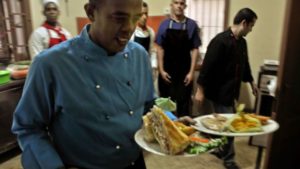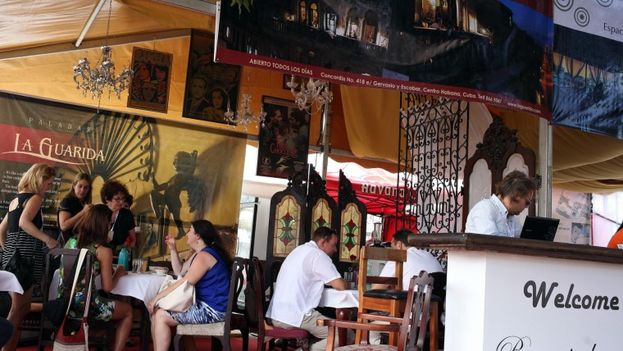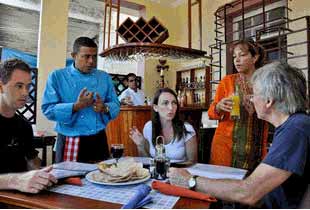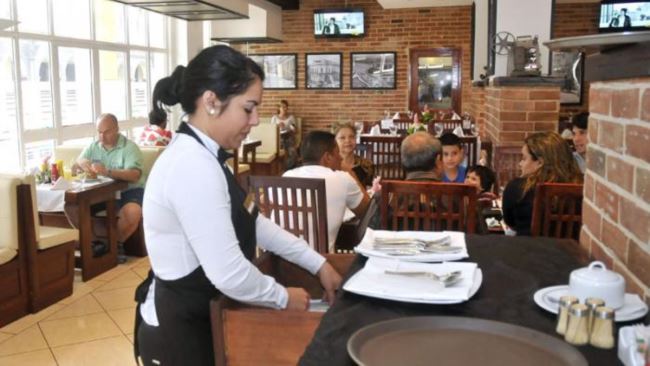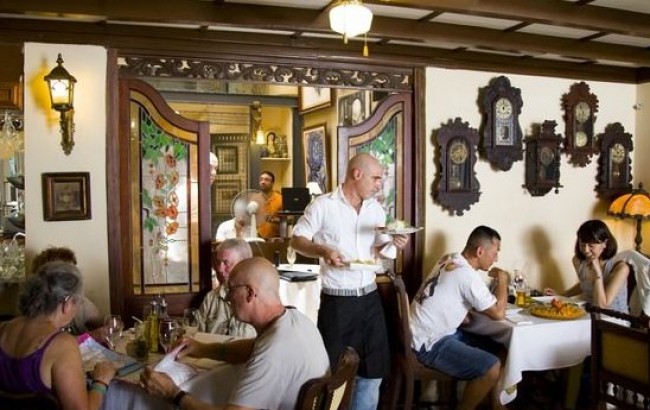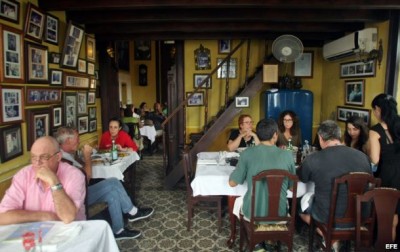The Cuban government last year increased its criticism of the accumulation of wealth in the country and has gone on the offensive against tax evasion and other practices of the private sector.
The number of Cubans working with self-employment licenses rose to 567,982 people in mid-2017, compared with 157,731 in 2010, when self-employment was strengthened to relieve the inflated and unproductive workforce of the state sector.
Private sector workers now represent about 12% of the country’s workforce, but the prosperity of some Cuban micro-entrepreneurs, especially those who work in connection with tourism and have much higher than average incomes, has become a source of concern for the Government.
A draft of new economic regulations proposes to increase state control over the private sector in Cuba and limit entrepreneurship, according to a copy of the document obtained by the British agency Reuters.
The project includes the creation of a new division of the Ministry of Labor that manages and controls what the government euphemistically calls “self-employment”. According to Reuters, the plan, which has not been publicly disclosed, suggests that there is discontent among some members of the ruling Communist Party with the reforms undertaken by Raúl Castro eight years ago, as part of a debate about the increase in inequality in the country. .
For example, the project would allow houses to obtain a license to operate only a restaurant, cafeteria or bar. That would limit the number of seats per establishment to 50. Many of the most successful private restaurants in Havana currently have several licenses, which allows them to serve 100 or more people.
“The decree-law strengthens functional control at the municipal, provincial and national levels” on the private sector, points out one of the decrees included in the 166-page document dated August 3, 2017, signed by Marcia Fernández Andreu, vice-president of the Secretariat of the Council of Ministers of Cuba.
The nascent private sector now represent about 12% of the country’s labor force, the simple prosperity of some Cuban micro-entrepreneurs, especially those working with tourism and have incomes well above the average, has become a threat to power state and a strong concern for the Government.
The average state salary is about $ 30 per month, the same amount that the owner of a hotel that offers bed and breakfast can charge for one night.
SECTOR PRIVADO CUBANO ESPERA NUEVA OFENSIVA GUBERNAMENTAL CONTRA LOS “CUENTAPROPISTAS”.
El Gobierno cubano aumentó el año pasado sus críticas a la acumulación de riqueza en el país y ha pasado a la ofensiva contra la evasión tributaria y otras prácticas del sector privado.
La cifra de cubanos que trabajan con licencias para autoempleo se elevó a 567.982 personas a mediados del 2017, comparadas con 157.731 en 2010, cuando se reforzó el trabajo por cuenta propia para aliviar las plantillas infladas e improductivas del sector estatal.
Los trabajadores del sector privado representan actualmente cerca de un 12% de la fuerza laboral del país, pero la prosperidad de algunos microempresarios cubanos, especialmente aquellos que trabajan en conexión con el turismo y tienen ingresos muy superiores a la media, se ha vuelto una fuente de preocupación para el Gobierno.
Un borrador de nuevas regulaciones económicas propone aumentar el control del Estado sobre el sector privado en Cuba y limitar el emprendimiento, según una copia del documento obtenida por la agencia británica Reuters.
El proyecto incluye la creación de una nueva división del Ministerio del Trabajo que gestione y controle lo que el Gobierno llama eufemísticamente “trabajo por cuenta propia”. Según Reuters, el plan, que no se ha difundido públicamente, sugiere que existe malestar entre algunos miembros del gobernante Partido Comunista con las reformas emprendidas por Raúl Castro hace ocho años, en el marco de un debate sobre el aumento de la desigualdad en el país.
Por ejemplo, el proyecto permitiría que las casas obtengan licencia para operar solo un restaurante, cafetería o bar. Eso limitaría el número de asientos por establecimiento a 50. Muchos de los restaurantes privados más exitosos de La Habana tienen actualmente varias licencias, lo que les permite atender a 100 personas o más.
“El decreto-ley fortalece el control funcional a nivel municipal, provincial y nacional” sobre el sector privado, señala uno de los decretos incluido en el documento de 166 páginas fechado el 3 de agosto de 2017, firmado por Marcia Fernández Andreu, vicejefa de la Secretaría del Consejo de Ministros de Cuba.
El naciente sector privado representan actualmente cerca de un 12% de la fuerza laboral del país, la simple prosperidad de algunos microempresarios cubanos, especialmente los que trabajan con el turismo y tienen ingresos muy superiores a la media, se ha vuelto como una amenaza al poder estatal y una fuerte preocupación para el Gobierno.
El salario estatal promedio es de unos 30 dólares mensuales, el mismo monto que puede cobrar por una noche el propietario de un hotel que ofrece alojamiento y desayuno.
Agencies/DDC/Reuters/Internet Photos/Extractos/ Arnoldo Varona/ TheCubanHistory.com
THE CUBAN HISTORY, HOLLYWOOD.



